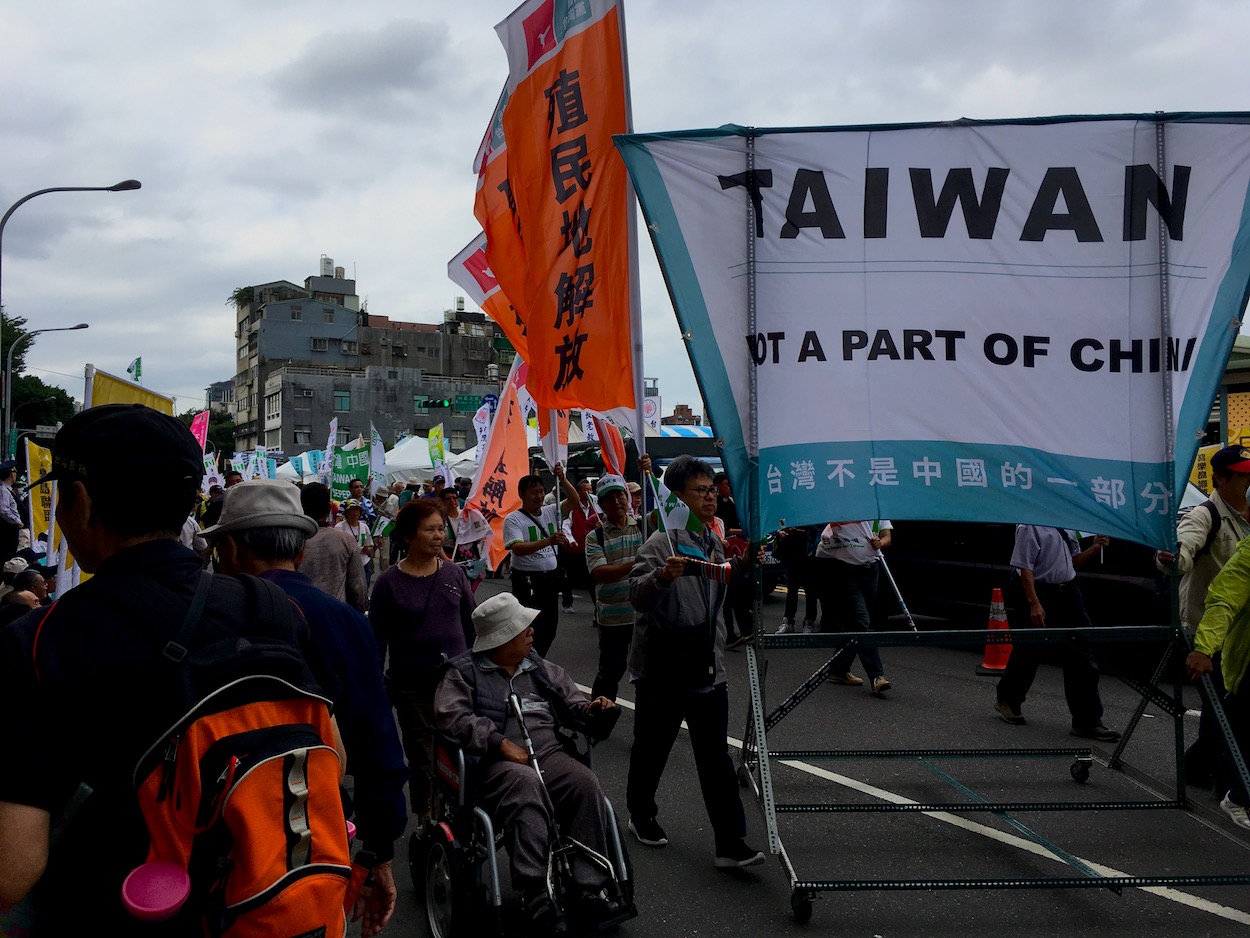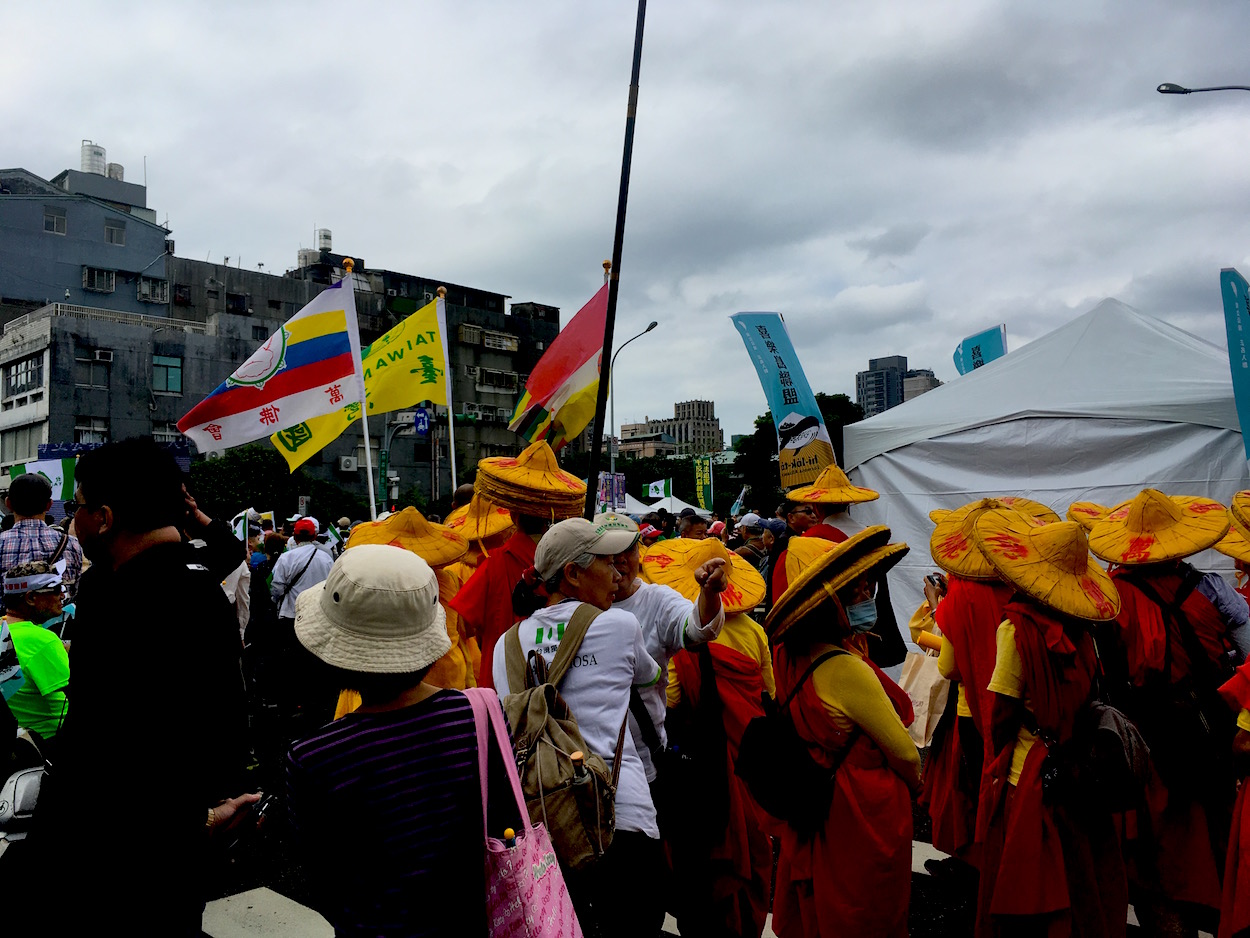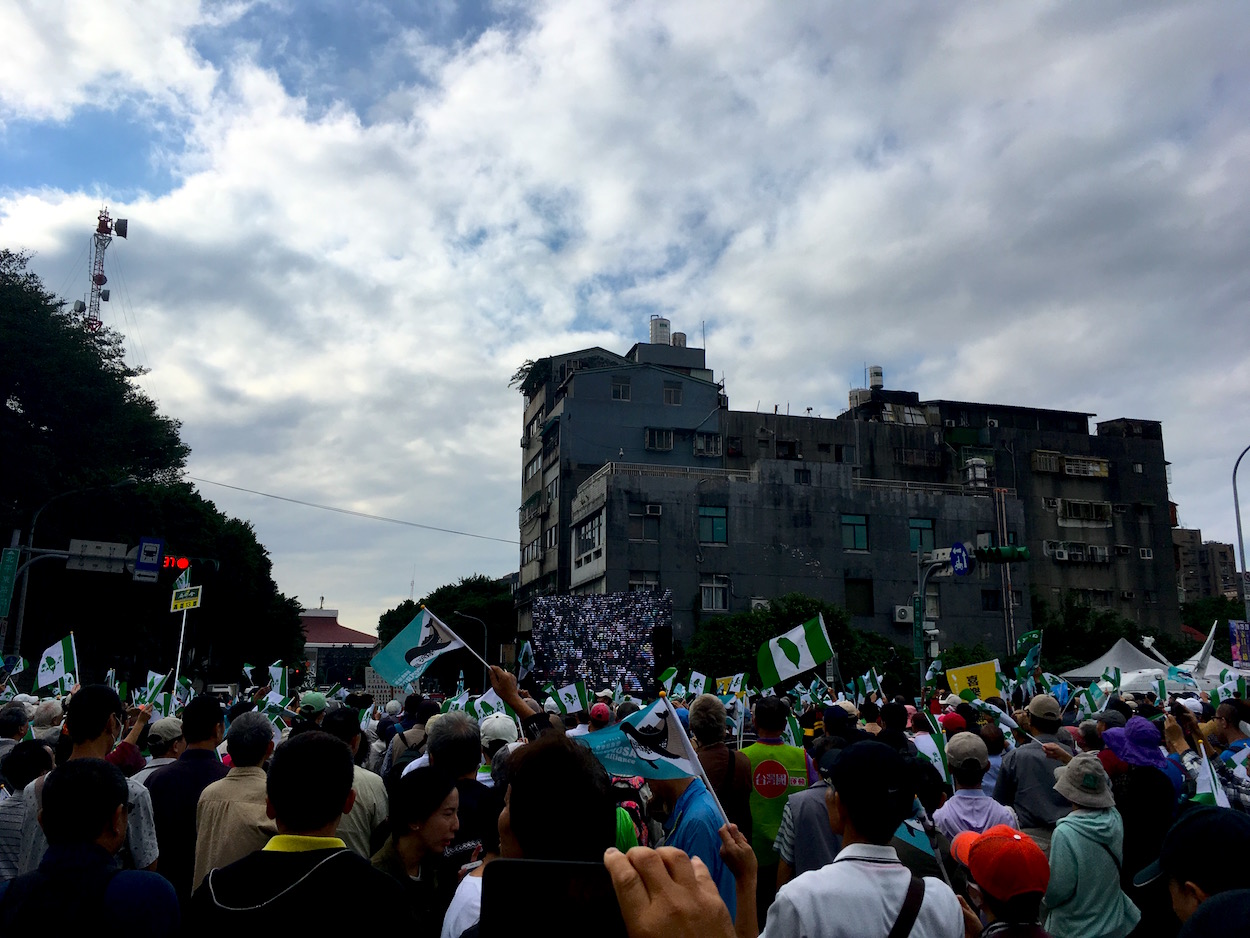by Brian Hioe
語言:
English
Photo Credit: Brian Hioe
THE PROPOSAL for Taiwan to participate in the 2020 Tokyo Olympics under the name “Taiwan”, instead of “Chinese Taipei”, was among those defeated during the referendum held simultaneously with 2018 local elections. This will have important ramifications going forward.
Taiwanese seem to have primarily driven to vote against the referendum because of fears that this would lead Taiwanese to be blocked entirely from participation in the 2020 Tokyo Olympics, as a result of Chinese pressure on the International Olympics Committee. The referendum on Taiwan’s participation in the 2020 Tokyo Olympics was the most popular of the referendum proposals on the slate in 2018 local elections, getting more than one million signatures. Fears that Taiwan could be blocked entirely from participating in the 2020 Tokyo Olympics actually only emerged in the week before voting was to actually take place.
 Rally by the Formosa Alliance, which organized the Olympics referendum, in front of DPP headquarters on October 20th. Photo credit: Brian Hioe
Rally by the Formosa Alliance, which organized the Olympics referendum, in front of DPP headquarters on October 20th. Photo credit: Brian Hioe
But what now for Taiwanese independence advocates? The referendum on what name Taiwan should participate in the 2020 Tokyo Olympics under was pushed for by Taiwanese independence advocates, it seems unlikely that Taiwanese would be willing to vote for Taiwanese independence if the possibility of merely being blocked from Olympics participation provokes such fear.
One can draw several conclusions from the results. First, as political scientist Austin Wang has pointed out, one notes that the vote was close, with 45% of those who voted still voting favorably for Taiwan participating as “Taiwan” instead of “Chinese Taipei” in the 2020 Tokyo Olympics. 4,730,000 voted for Taiwan participating as “Taiwan”, while 5,730,000 voted for Taiwan participating as “Chinese Taipei.” Despite the referendum proposal being defeated, this was actually still more percentage of the total votes that the DPP received in 2018 elections.
One also speculates to some degree as to whether the large number of petition votes lulled some voters into a false sense of security, resulting in that they did not vote on the referendum question. It is significant that the referendum on the 2020 Tokyo Olympics was one of the referendums that did not meet the 25% participation benchmark needed for the referendum to be legally binding.
After the referendum, there are certainly those will try to spin the results as meaning that Taiwanese do not want to break away from China. It is likely that some will even try to generate the perception that the vote for “Chinese Taipei” indicates that Taiwanese wish to remain as part of China in some form.
 Photo credit: Brian Hioe
Photo credit: Brian Hioe
But the results of the referendum are likely consistent with majority support for the status quo by Taiwanese, with Taiwanese not supporting unification with China or a form of actively pushing for de jure independence that could result in military reprisals from China. This would be the so-called “pragmatic” voting behavior of Taiwanese.” And so, if voting on participation in the Olympics was pushed for by independence advocates as a trial run for an independence referendum, this is also another of the outcomes that is directly reflective of how an independence referendum would likely play out. The 2020 Tokyo Olympics referendum may be a valuable lesson, then, for independence advocates, particularly because the stakes for Taiwan were not as high as an independence referendum would be.
One generally suspects, however, that it is wholly possible that China will seek to discipline Taiwan for simply holding the referendum to begin with—never mind that Taiwanese voters voted it down. Such heavy-handed behavior by China would be nothing new.
However, this, too, would also indirectly reflect the dilemma of only clinging to the status quo and hoping that it will hold forever without also seeking ways to establish a more permanent form of Taiwanese independence than what exists now, in which Taiwan is de facto independent of China, but lacks de jure independence from China. Namely, threats against Taiwan from China will only escalate in the future and so waiting it out and hoping for the best is also not a viable option for maintaining Taiwan’s de facto independence.
And so, for independence advocates, means need to be considered of how to push the Taiwanese population to more deeply consider such issues. Before an independence referendum or some other means of seeking to realize a more permanent independence for Taiwan is launched, much work still needs to be done. Otherwise more harm than good could be done to the cause of Taiwanese independence.
 Photo credit: Brian Hioe
Photo credit: Brian Hioe
Still, one wonders if such lessons will be drawn, with accusations against the Taiwan Olympics Committee and the Central Election Commission for releasing information in such a manner as to influence the course of voting. This may actually very well have taken place—even deliberately—at the behest of a Tsai administration that does not wish to rock the boat too hard on cross-strait relations or even pan-Blue elements still present in such government bodies. Yet this would not be the most important lesson to take away from the Olympics referendum.

